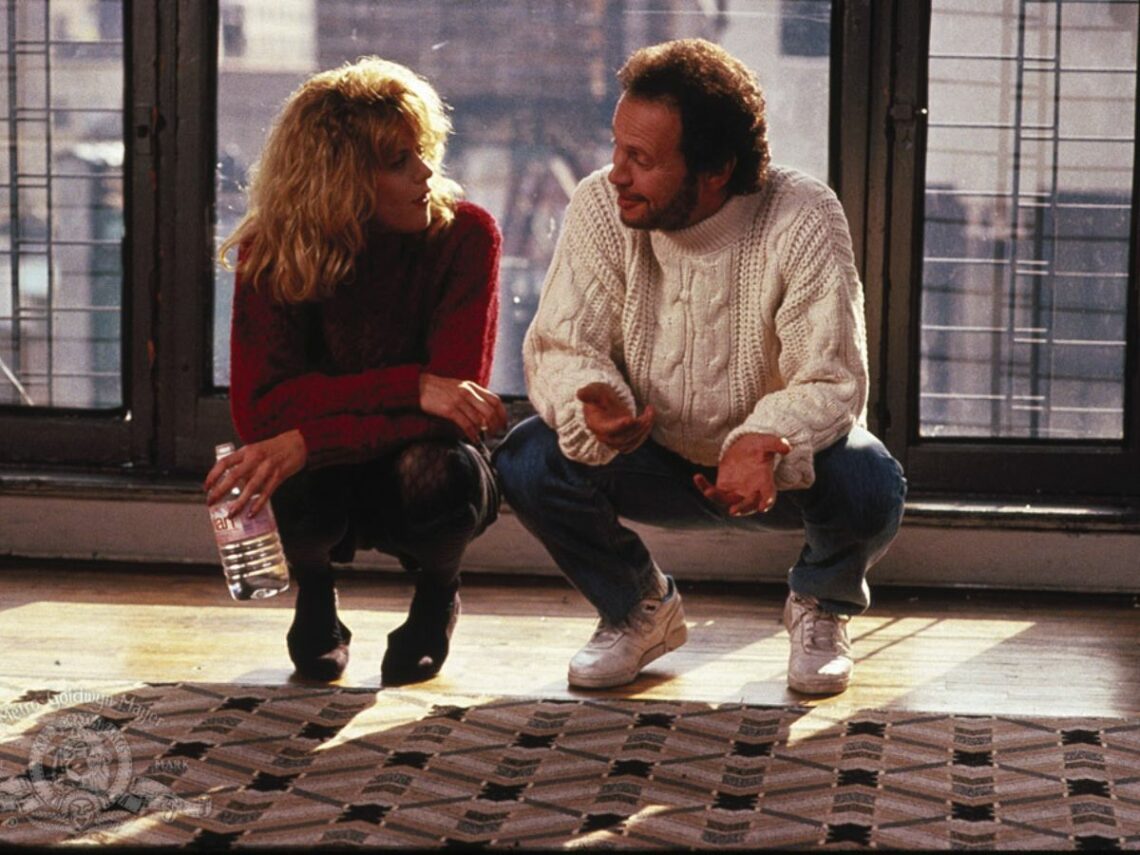When it comes to romantic comedies, almost everyone is happy with dismissing the genre as low art. Although many of the genre’s products are commercial vehicles designed to generate money, there are exceptions. Among the latter, one of the finest examples of the magic that romantic comedies are capable of is When Harry Met Sally.
The film was written by Nora Ephron, who went on to write and direct many other romantic comedies, such as You’ve Got Mail and Sleepless in Seattle. However, When Harry Met Sally was directed by Rob Reiner, the man behind This Is Spinal Tap, Stand By Me, and The Princess Bride. The movie was conceived through multiple meetings between Ephron and Reiner, who devised a plotline about two friends who know having sex will ruin their friendship, yet do it anyway.
During the mid-1980s, Reiner was struggling to navigate single life following his divorce. Thus, Ephron channelled his comedic neuroses into the character of Harry, with Billy Crystal, Reiner’s best friend, studying the director’s idiosyncracies as preparation for the role. Crystal’s effortless wit, often reciting lines he’d improvised, makes Harry, who, on paper, should be insufferable, instead an entirely loveable character. Similarly, Ephron based Meg Ryan’s Sally on herself and her friends, demonstrating the film’s dedication to exploring realistic attitudes towards love and relationships.
In When Harry Met Sally, the pair meet as university graduates and instantly hate one another. They disagree on nearly everything, and Harry poses the question that becomes central to the film’s plotline, “Can men and women just be friends?” Five years go by before they bump into each other again, now in separate relationships. Although Harry poses the question of friendship, they ultimately decide not to see each other again. However, over the following years, the pair cross paths again and eventually strike up a connection. The charm of Reiner and Ephron’s film lies in the fact that we are constantly rooting for Harry and Sally to be together, despite their differences. The chemistry is more than apparent, yet it takes them 12 years to finally acknowledge what the audience can see all along.
When the film begins, it’s easy to assume it will fall into the genre’s all-too-common clichés and overused tropes. But When Harry Met Sally plays with convention, constantly keeping us on our toes. Although we know it is likely that Harry and Sally will end up together, which they do (thank God), the film strings us along through dialogue-heavy scenes that illuminate their differences. Harry can be annoyingly overly pessimistic, and Sally can be annoyingly optimistic. Yet, by giving the characters time to breathe, the film becomes a magnificent character study, hyper-focusing on the differing attitudes of men and women that shape modern dating. Reiner and Ephron know that their characters aren’t perfect, but their characterisation is. They possess relatable attitudes, simultaneously representing the best and worst bits of us, which makes their unfolding relationship a joy to watch.
There’s plenty of allure to When Harry Met Sally, from its cosy New York setting that has drawn comparisons to Woody Allen’s Annie Hall to its perfect soundtrack performed by Harry Connick Jr, embuing the film with warmth during its sharpest moments. Not only are the leading actors fantastic in their roles – it’s hard to remind ourselves that Harry and Sally aren’t real – but their best friends, Marie (Carrie Fisher) and Jess (Bruno Kirby), make ideal accompaniments, reflecting everything that our protagonists are not.
Reiner and Ephron condense the film down to romance and friendship – nothing else matters in the world of When Harry Met Sally and that’s why it is so good. The film isn’t preoccupied with external conflicts, thus allowing sex and relationships to be explored in minute and nuanced detail. Although many tropes used in When Harry Met Sally have become overused in the genre’s framework, the film retains its fresh and innovative spirit decades later, making it the greatest romantic comedy of all time.
